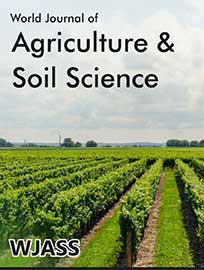 Mini Review
Mini Review
Raising Calves in the Dairy Period Without Antibiotics
Yu Fomichev*
Department of Biochemistry and Physiology of Agricultural Animals/ Laboratory of Chemical and Analytical Research, L.K. Ernst Federal Science Center for Animal Husbandry, Russia
Yu Fomichev, Professor, Department of Biochemistry and Physiology of Agricultural Animals/ Laboratory of Chemical and Analytical Research, L.K. Ernst Federal Science Center for Animal Husbandry, Russia.
Received Date: January 13, 2020; Published Date: February 07, 2020
Abstract
The raising of healthy calves, both for the reproduction of the dairy herd and for the production of meat, is a fundamental link in realizing the genetically determined potential of animal productivity and has a significant impact on the economy of the dairy cattle breeding industry. The most common diseases of young animals are gastrointestinal and pulmonary infections, which are closely related to the physiological status of the neonatal period, characterized by functional instability in the work of many systems and increased vulnerability of the body, inadequate rhythms of blood circulation and respiration, digestion functions and body protection. The triggering principle of the disease can be stressful factors - improper and untimely feeding of newborns, poor-quality colostrum and giving it in a chilled state. As a result, withdrawal of calves, for example, due to diarrhea, can reach 30-50% or more of the number of births, and those who are ill are strongly behind in growth. It should be noted that both in the prevention and in the metaphylaxis of these diseases, the main means are antibiotics, which in addition to the therapeutic effect have a detrimental effect on the beneficial intestinal microflora, which inhibits the functional and physiological development of the gastrointestinal tract as a whole. In the formation of productive health, including nonspecific resistance and immunity of the calf’s body, biologically active substances play an important role - regulators of homeostasis of natural origin, which, as a rule, are absent or have low bioavailability in synthetic diets. These substances include dihydroquercetin (DHQ) and arabinogalactan (AG).
-
Yu Fomichev. Raising Calves in the Dairy Period Without Antibiotics. World J Agri & Soil Sci. 4(2): 2020. WJASS.MS.ID.000584.
-

This work is licensed under a Creative Commons Attribution-NonCommercial 4.0 International License.






